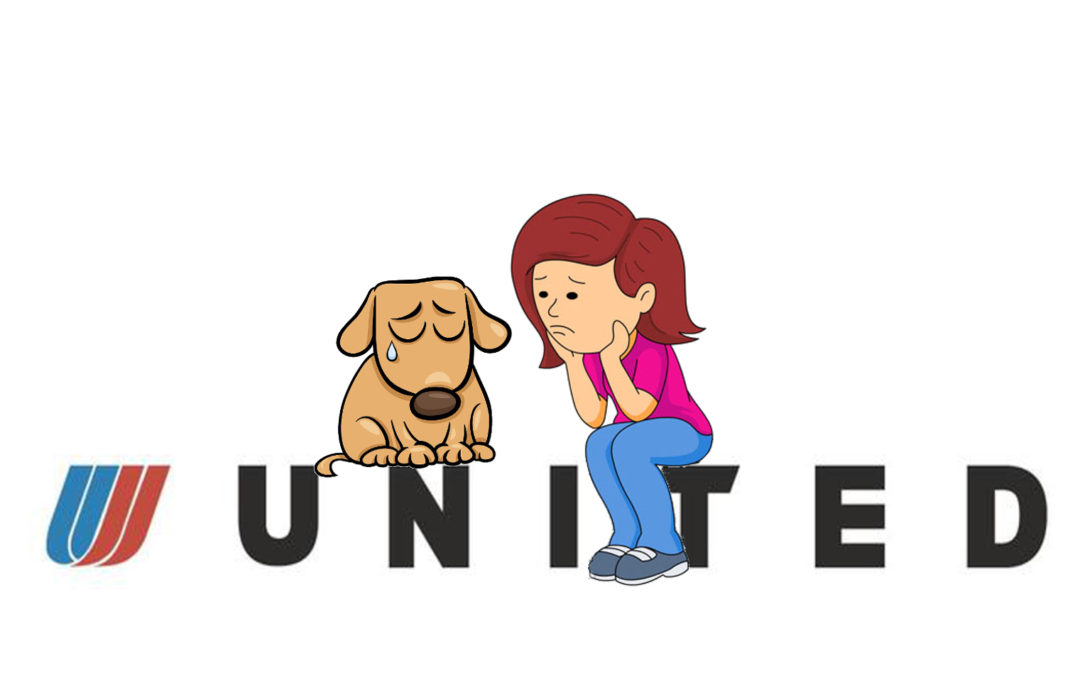
by Adam Hartung | Mar 20, 2018 | Investing, Leadership, Lock-in, Marketing, Strategy, Transportation
Do you remember the songs, and videos, from 2008 “United Breaks Guitars?” After United Airlines destroyed musician Dave Carroll’s guitar he chronicled the months-long journey he took trying to replace it. In the end, United told him “F**k you” as customer service blew him off completely. He went on to make a few million dollars with his songs and parody about the horrible experience. Because so many people felt they were abused like Mr. Carroll.
“United Breaks Guitars” was a hit because so many people related to the terrible customer experience on United. 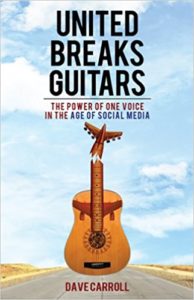 “The Unfriendly Skies” was the motto of customers, mocking the airlines “Friendly Skies” ads. It was clear that by 2008 United did not care about customers. Moving headlong to constantly lower operating costs, United built a culture that focused solely on efficiency, leading to terrible customer service, unhappy customers and employees that were a lot more worried about being yelled at by their bosses for not cutting costs than creating any customer satisfaction.
“The Unfriendly Skies” was the motto of customers, mocking the airlines “Friendly Skies” ads. It was clear that by 2008 United did not care about customers. Moving headlong to constantly lower operating costs, United built a culture that focused solely on efficiency, leading to terrible customer service, unhappy customers and employees that were a lot more worried about being yelled at by their bosses for not cutting costs than creating any customer satisfaction.
Things certainly haven’t changed. In 2017, United ejected a 69 year old physician from a plane, breaking his nose, knocking out his teeth and giving him a concussion. That created an uproar. Yet within a week United killed the world’s largest bunny rabbit in an airplane holding bin. But, even worse, last week United actually killed a puppy by forcing it be placed in an overhead bin. At least the dog United sent on a 1,000 mile unexpected flight to Japan survived, and the interviewed owner said he felt lucky the airline hadn’t killed his pet. Of course United refunded their money – which as you can imagine was a slap in the face to all these people who were so abused.
Unfortunately, United is just the worst of a bunch of bad airlines. Customer service really isn’t any better on Delta, American, JetBlue or Southwest. Saying these other airlines are better is just picking out a less heinous member of the Khmer Rouge Army.
STRATEGY MATTERS
This all goes back to deregulation. When President Carter allowed the airlines to charge as they like the industry really had no idea what it was going to do. There was chaos for years. But eventually consolidation kicked-in, and cutting cost was the only thing all 3 majors agreed upon. Buy more market share, as opposed to winning it with customer service, then slash the costs. This did the wonderfulness of leading all of them to file bankruptcy! Some twice! What a grand industry strategy!
 Then Chairman of American Airlines received Wall Street Journal front-page coverage for realizing people weren’t eating their olives in first class, so he ordered olives removed from the first class meals. He was cheered for saving $100K. But what folks missed was that he, and his peers leading the airlines, were systematically trying to figure out “how do we offer the least possible service.” By focusing on a strategy of lowering cost, and being doggedly determined in that strategy, soon nothing else mattered.
Then Chairman of American Airlines received Wall Street Journal front-page coverage for realizing people weren’t eating their olives in first class, so he ordered olives removed from the first class meals. He was cheered for saving $100K. But what folks missed was that he, and his peers leading the airlines, were systematically trying to figure out “how do we offer the least possible service.” By focusing on a strategy of lowering cost, and being doggedly determined in that strategy, soon nothing else mattered.
Today, there are no free meals in coach, and terrible meals in first class. Management angered employees into strikes and multi-year negotiations, beating down compensation and eliminating benefits leading to unhappiness so bad that in 2010 a Jet Blue flight attendant pulled the emergency exit and jumped out of the plane as he quit.
So, all the airlines in America stink. And, many domestic airlines in Europe, such as Ryan Air, have followed suit. The execs keep saying “all customers care about is price.” They use that excuse to create a culture so hostile to employees, and customers, that pretty soon employees are beating up customers and killing family pets (after charging extra to take the pet on the plane) and actually not caring.
Employees have become gestapos for the leadership – which has created a culture in which nobody wins. So flight attendants do as little as possible, because they don’t care about customers any more than leadership does. In 2017, a JetBlue attendant threw a family off flight because their toddler kicked the seat. When a woman complains about a child in seat next to her a Delta attendant throws her off the plane. And just last week when a 2 year old cries during boarding a Southwest attendant throws the child and her father off the plane.
Deregulation led to an oligopoly. Now, customers have no choice. Some of us fly almost every week on business, and it is pure hell. Nobody we deal with, from TSA to airport vendors to airline staff like customers. The culture has become “I’m abused, so you will be abused.” To fly is to succumb to being obsequious to ALL employees in your effort to not anger anyone, for fear they will deny you service. Or, worse, beat you up or kill your pet. But, honestly, there is nothing customers can do about it.
STRATEGY MATTERS
The leadership of the airlines, lacking regulation, implemented a strategy of “be low cost.” The result was creating a culture where employees routinely abuse customers in the process of trying to save a few dimes. If the next Mark Zuckerberg, Elon Musk or Reed Hastings showed up, do you think HR would hire them? Would the Board of Directors, so focused on the wrong strategy, consider any of them as CEO? The wrong strategy has led to the ruination of an entire industry, miserable employees, unhappy customers and marginal returns. It is a terrible culture.
So what is your strategy? Is your strategy creating the culture you want? Are you headed toward happy customers who want more of your product or service, and create growth? Or are you letting your lack of a forward-thinking strategy default you into operational cost cutting, and the movement toward a culture of misery that drives away employees, vendors and eventually customers?
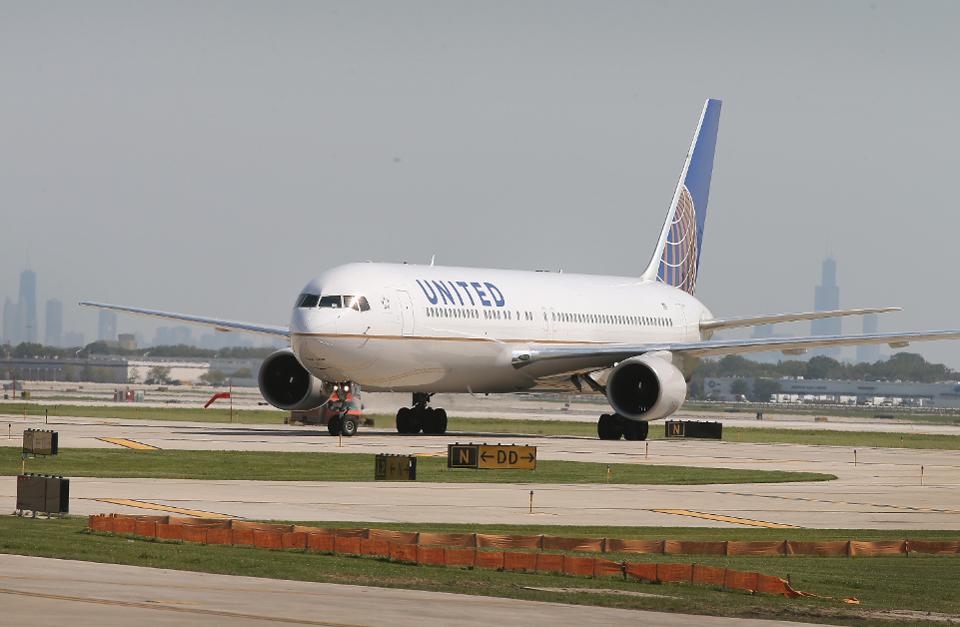
by Adam Hartung | Apr 10, 2017 | Leadership, Transportation
Most readers of this column will already know that on Sunday, April 9, 2017 United Airlines forcibly removed a 69-year-old passenger from a flight, over his objections. United employees had Chicago Aviation Police board the plane, grab the passenger (who had a valid boarding pass) and drag him off the plane as if he were a hijacker. In the process the police banged his head on an armrest, leaving him battered and bloodied. When the passenger returned to the plane the police again forcibly manhandled him, restrained him and took him off the plane strapped onto a stretcher.
All so the airline could board a flight attendant that needed to reach the plane’s destination in order to make her next working flight. In other words, United’s front line management chose to not only inconvenience a paying customer, but physically abuse that customer so the airline would maintain its operating crew schedule.
After, the company CEO Oscar Munoz apologized for “re-accomodating” customers. Since about 40,000 people are “re-accomodated” — or bumped from oversold flights — annually, the CEO’s apology covers the 3,675 United customers bumped in 2016. But, he did not apologize for United employees taking action that directly led to the physical abuse of a customer.
Most of us would not believe this story if it were part of a fictional movie. How could it be possible for a front-line employee to think it is acceptable to forcibly eject a paying customer already on the plane?How could it be possible that a CEO would be so uncaring as to not apologize for a clear, horrific lapse in judgement by someone on his management team? Whatever the situation, every action taken by United merely served to make the situation worse. How could a company so large be so mismanaged — from the bottom to the top?
Blame “Operational Excellence”
That is the problem with CEOs, and leadership teams, that focus on “operational excellence” as a strategy. They become so focused on efficiency, cost cutting and business operations that they forget about customers — or anything else. All that matters is keeping the business operating, while trying to keep costs as low as absolutely possible. Management, from bottom to top, is rewarded for operational performance, while all other metrics are ignored. Including customer satisfaction.
In “operationally excellent” companies the focus on low costs is driven by a desire to keep prices low. The perception among management is that customers care only about price, so there is no reason to track anything other than costs. If they keep costs (and prices) low customers will be happy, regardless of anything else in the customer’s experience.
United Has Abused Customers For Years
This is not the first time United has had this kind of problem. In 2009 Canadian musician Dave Carroll became a sensation after producing a series of YouTube videos that chronicled his experience after United baggage handlers destroyed his guitar. The baggage handlers clearly did not care about his guitar. Nor did the gate agents, the baggage department or the customer service department. After many, many calls United personnel simply decided Mr. Caroll’s broken guitar would not be compensated — even though they broke it — and he should just “get over it.”
In 2013, United came in dead last in the Airline Quality Rating. United’s response (as I detailed in a 2013 Forbes column) was simply that “they did not care.” Quite literally, lowering cost was more important that being dead last in customer satisfaction.
In 2016, United fired its CEO after discovering he was bribing government officials to obtain favorable treatment at New Jersey and New York airports. The pressure to lower cost in the “operationally excellent” strategy was so paramount that judgement falters not only at low levels, but all the way up to the CEO.
Operational Excellence Hurt WalMart As Well As United
United isn’t alone in its failures due to operational excellence focus. WalMart has been the victim of bad management judgment for the same reason. Remember in July, 2014 when a WalMart truck driver who had been awake for 24 hours hit a car in New Jersey killing comedian James McNair and seriously injuring comedian Tracy Morgan? That driver had been on the road longer than he should, with insufficient sleep, in his effort to meet operational deadlines – and was charged with aggravated manslaughter, second-degree vehicular homicide and 8 counts of third-degree aggravated assault charges.
This happened just two years after investors learned WalMart was accused of bribing Mexican government officials to keep costs low there — bribery that caused the departure of the WalMart Mexico president, and eventually Walmart’s CEO. In both cases, at the top and at the front line, judgment was impaired by leadership’s focus on operational efficiency.
Unfortunately, too many business leaders put too much energy into operational excellence. They focus on cutting costs, improving operations, and trying to offer low price as the primary reason customers should do business with them. They quickly lose sight of customer needs, wants and wishes as they overly simplify their business’ offering into price. And this leads to bad decision-making all the way from the CEO to the front line manager — who will drive customers away in his effort to meet operational metrics and goals.
Once Locked In Operational Excellence Is A Hard Strategy, And Culture, To Change
United clearly needs a cultural change. But will it make one? Given the CEO’s reaction to this incident, it appears highly unlikely. Locked in to viewing his company operationally, Munoz appears to have lost common sense when it comes to customers – and running the business in a way that can lead to long-term profitability. Herb Kelleher, founder of Southwest Airlines, and Richard Branson, founder of Virgin Airlines, knew there was more to a successful airline than flight schedules and cheap fuel purchases. So far United’s leadership has failed to see the obvious.
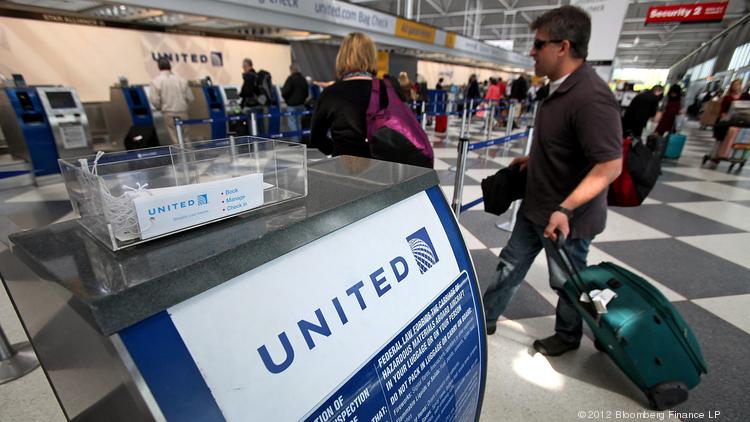
by Adam Hartung | Mar 13, 2016 | In the Swamp, Leadership, Travel
United Continental Holdings is the most recent public company to come under attack by hedge funds. Last week Altimeter Capital and PAR Capital announced they were using their combined 7.1% ownership of United to propose a slate of 6 new directors to the company’s board. As is common in such hedge fund moves, they expressed strongly their lack of confidence in United’s board, and pointed out multiple years of underperformance.
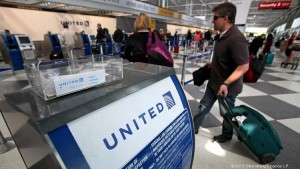 United’s leadership is certainly in a tough place. The airline consistently ranks near the bottom in customer satisfaction, and on-time performance. It has struggled for years with labor strife, and the mechanics union just rejected their proposed contract – again. The flight attendant’s union has been in mediation for months. And few companies have had more consistently bad public relations, as customers have loudly complained about how they are treated – including one fellow making a music and speaking career out of how he was abused by United personnel for months after they destroyed his guitar.
United’s leadership is certainly in a tough place. The airline consistently ranks near the bottom in customer satisfaction, and on-time performance. It has struggled for years with labor strife, and the mechanics union just rejected their proposed contract – again. The flight attendant’s union has been in mediation for months. And few companies have had more consistently bad public relations, as customers have loudly complained about how they are treated – including one fellow making a music and speaking career out of how he was abused by United personnel for months after they destroyed his guitar.
But is changing the directors going to change the company? Or is it just changing the guest list for an haute couture affair? Should customers, employees, suppliers and investors expect things to really improve, or is this a selection between the devil and the deep blue sea?
Much was made of the fact that one of the proposed new directors is the former CEO of Continental, Gordon Bethune, who was very willing to speak out loudly and negatively regarding United’s current board. But Mr. Bethune is 74 years old. Today most companies have mandatory director retirement somewhere between age 68 and 72. Retired since 2004, is Mr. Bethune really in step with the needs of airline customers today? Does he really have a current understanding of how the best performing airlines keep customers happy while making money?
And, don’t forget, Mr. Bethune hand picked Mr. Jeff Smisek to replace him at Continental. Mr. Smisek was the fellow who took over Mr. Bethune’s board seat in 2004 after being appointed President and COO when Mr. Bethune retired. Smisek became CEO in 2010, and CEO of United Continental after the merger, and led the ongoing deterioration in United’s performance as well as declining employee moral. And then there’s that pesky problem of Mr. Smisek bribing government officials to improve United’s gate situation in Newark, NJ which caused him to be fired by the current board. Is it coincidental that this attack on the Board did not happen for years, but happens now that there is a new CEO – who happens to be recently recovering from a heart replacement?
Although Mr. Bethune has commented that the new board would be one that understands the airline industry, the slate does not reflect this. Mr. Gerstner is head of Altimiter and by all accounts appears to be a finance expert. That was the background Ed Lampert brought to Sears, another big Chicago company, when he took over that board. And that has not worked out too well at all for any constituents – including investors.
One can give great kudos to the hedge funds for proposing a very diverse slate. Half the proposed directors are either female or of color. And, other than Mr. Bethune, the slate is pretty young – with 2 proposed directors under age 50. Congratulations on achieving diversification! But a deeper look can cause us to wonder exactly what these directors bring to the challenges, and what they are likely to want to change at United.
Rodney O’Neal was the former CEO of Delphi Automotive. A lifelong automotive manager and executive, he graduated from the General Motors Institute and spent his career at GM before going to the parts unit GM had created in 1997 as a Vice President. Many may have forgotten that Delphi famously filed for bankruptcy in 2005, and proceeded to close over half its U.S. plants, then close or sell almost all of the other half in 2006. Mr. O’Neal became CEO in 2007, after which the company closed its plants in Spain despite having signed a commitment letter not to do so. He was CEO in 2008 when the company sued its shareholders. And in 2009 when the company sold its core assets to private investors, then dumped assets into the bankrupt GM, cancelled the stock and renamed the old Delphi DPH Holdings. Cutting, selling and reorganizing seem to be his dominant executive experience.
Barney Harford is a young, talented tech executive. He headed Orbitz, where Mr. Gerstner was on the board. Orbitz was originally created as the Travelocity and Expedia killer by the major airlines. Unfortunately, it never did too well and Mr. Harford actually changed the company direction from primarily selling airline tickets to selling hotel rooms.
It is always good to see more women proposed for board positions. However, Ms. Brenda Yester Baty is an executive with Lennar, a very large Florida-based home builder. And Ms. Tina Stark leads Sherpa Foundry which has a 1 page web site saying “Sherpa Foundry builds
bridges between the world’s leading Corporations and the Innovation Economy.” What that means leaves a lot of room for one’s imagination, and precious little specifics. What either of these people have to do with creating a major turnaround in the operations of United is unclear.
There is no doubt that United is ripe for change. Replacing the CEO was clearly a step in the right direction – if a bit late. But one has to wonder if the new directors are there to make some specific change? If so, what kind of change? Despite the rough rhetoric, there has been no proclamation of what the new director slate would actually do differently. No discussion of a change in strategy – or any changes in any operating characteristics. Just vague statements about better governance.
Historically most activists take firm aim at cutting costs. And this is probably why the 2 largest unions have already denounced the new slate, and put their full support behind the existing board of directors. After so many years of ill-will between management and labor at United, one would wonder why these unions would not welcome change. Unless they fear the new board will be mostly focused on cost-cutting, and further attempts at downsizing and pay/benefits reductions.
Investors will most likely get to vote on this decision. Keep existing board members, or throw them out in favor of a new slate? One would like to see United’s reputation, and operations, improve dramatically. But is changing out 6 directors the answer? Or are investors facing a vote that has them selecting between 2 less than optimal options? It would be good if there was less rhetoric, and more focus on actual proposals for change.
by Adam Hartung | Apr 11, 2013 | Current Affairs, Defend & Extend, In the Swamp, In the Whirlpool, Leadership
The good folks at Wichita State (a final four contender as U.S. basketball fans know) and Purdue released their 2013 Airline Quality Rating. United Airlines came in dead last. To which United responded that they simply did not care. Oh my.
Interestingly, this study is based wholly on statistical performance, rather than customer input. The academics utilize on-time flight performance, denied passenger boardings, mishandled bags and complaints filed with the Department of Transportation. It does not even begin to explore surveying customers about their satisfaction. Anyone who flies regularly can well imagine those results. Oh my.
So how would you expect an innovative, adaptive growth-oriented company (think like Amazon, Apple, Samsung, Virgin, Neimann-Marcus, Lulu Lemon) to react to declining customer performance metrics? They might actually change the product, to make it more desirable by customers. They might hire more customer service representatives to identify customer issues and fix problems quicker. They might adjust their processes to achieve higher customer satisfaction. They might train their employees to be more customer-oriented.
But, United decidedly is not an innovative, adaptive organization. So it responded by denying the situation. Claiming things are getting better. And talking about how it is spending more money on its long-term strategy.
United doesn't care about customers – and really never has. United is focused on "operational excellence" (using the word excellence very loosely) as Messrs. Treacy and Wiersema called this strategy in their mega-popular book "The Discipline of Market Leaders" from 1995. United's strategy, like many, many businesses, is to constantly strive for better execution of an old strategy (in their case, hub-and-spoke flight operations) by hammering away at cutting costs.
Locked in to this strategy, United invests in more airplanes and gates (including making acquisitions like Continental) believing that being bigger will lead to more cost cutting opportunities (code named "synergies".) They beat up on employees, fight with unions, remove anything unessential (like food) invent ways to create charges (like checked bags or change fees), fiddle with fuel costs, ignore customers and constantly try to engineer minute enhancements to operations in efforts to save pennies.
Like many companies, United is fixated on this strategy, even if it can't make any money. Even if this strategy once drove it to bankruptcy. Even if its employees are miserable. Even if quality metrics decline. Even if every year customers are less and less happy with the product. All of that be darned! United just keeps doing what it has always done, for over 3 decades, hoping that somehow – magically – results will improve.
Today people have choices. More choices than ever. That's true for transportation as well. As customers have become less happy, they simply won't pay as much to fly. The impact of all this operational focus, but let the customer be danged, management is price degradation to the point that United, like all the airlines, barely (or doesn't – like American) cover costs. And because of all the competition each airline constantly chases the other to the bottom of customer satisfaction – each lowering its price as it mimics the others with cost cuts.
In 1963 National Airlines ran ads asking "is this any way to run an airline?" Well, no.
Success today – everywhere, not just airlines – requires more than operational focus. Constantly cutting costs ruins the brand, customer satisfaction, eliminates investment in new products and inevitably kills profitability. The litany of failed airlines demonstrates just how ineffective this strategy has become. Because operational improvements are so easily matched by competitors, and ignores alternatives (like trains, buses and automobiles for airlines) it leads to price wars, lower profits and bankruptcy.
Nobody looks to airlines as a model of management. But many companies still believe operational excellence will lead to success. They need to look at the long-term implications of this strategy, and recognize that without innovation, new products and highly satisfied new customers no business will thrive – or even survive.
by Adam Hartung | Dec 1, 2011 | Current Affairs, Defend & Extend, In the Whirlpool, Leadership, Travel
Airline company AMR, owner of popular American Airlines, filed bankruptcy this week. To which most people responded “again?” The reaction was less about AMR, which is having a first-time filing, and more about airline bankruptcies overall. People are simply used to airlines failing.
Most people are so used to everything about airlines sucking that news a major filed bankruptcy simply wasn’t surprising. What they cared most about were two questions: “Is my ticket any good?” and “Do I get to keep my frequent flyer miles?”
Conceptually, business is not hard to understand. Create a product or service that people want. Make it appealing enough so people will pay enough to cover costs and make a profit, allowing you to re-invest in growth and repay your investors. Pretty simple.
But AMR, like most airlines, simply doesn’t understand this concept. Yes, people want to fly. But ever since deregulation, service has become worse and worse. Ask anyone what they think of American (or United or Delta or any “major” airline) and answers are the same. They hate them.
- Pricing is incomprehensible. You may pay $800 for a ticket, and the person beside you $200 and the reason is completely unclear.
- There is never enough room on the plane for all the carry-on luggage, but that is free while the airline charges for checking bags. What they don’t want (carry-ons) is free, what they want (check your bags) requires you pay?
- You are charged for a checked bag, but if the bag is late, damaged or items stolen you have no recourse to the airline
- When planes are late or cancelled, nobody cares how much customers are inconvenienced. Literally. You have no recourse to bad, or failed, service.
- Planes are cramped and dirty, often looking well worn – or worn out.
- Every year planes are becoming smaller and less comfortable.
- The food is gone – or wildly expensive. And that little botttle of rum costs as much as a fifth at home.
- Empllyees appear uncaring at best, or simply rude. It’s like there are way too many customers, and not enough of them, so “PLEASE stay back and do what we tell you to do!”
This list could go on forever (readers, feel free to comment on your favorite stupid policy or practice of any airline.) Why? Because the airline’s leaders have completely lost track of what business is all about. In the rush to cut prices, trying to sell that last empty seat on that midnight feeder flight to Omaha, the entire industry has driven out all the customer satisfaction, and profitability. Everyone has learned that it doesn’t matter how much you pay, the experience is going to suck. So the industry has taught customers to be price sensitive, above all else.
Shortly after deregulation Robert Crandall became AMR’s Chairman. He was a notorious cost cutter. The Wall Street Journal ran a front page article highlighting his efforts to build American, highlighting how on a flight Mr. Crandall noticed that few customers were eating the 3 black olives on their salad. He claimed to go back to company managers and tell them to remove the olives, thereby saving (ostensibly) $700,000/year. Nobody would notice, he claimed, and money was saved.
And that’s been the trajectory for American ever since. Cut this, cut that. Shave costs everywhere, including employee pay, benefits and pensions. And after 30 years, the sum total is that not only are the olives gone – the whole meal has disappeared! Where working at an airline was once considered a great job (pilot, flight attendant, gate agent or baggage handler, ) today compensation has been cut and complicated (remember tiered compensation that has 2 people doing the same job, but at different pay just because of hire date?) so that employees are largely overworked, under-appreciated and constantly being pushed by management one direction, while pulled by customers in another.
Where once we didn’t mind flying, maybe even enjoyed it,now everyone thinks of flying as the opportunity to learn what life is like as herded, and penned, livestock!
It has been a fallacy of “modern management” that leaders have a primary job to optimize the business – largely by limiting innovation and cutting costs. The famous business guru, Jim Collins (author of Good to Great,) actively advocates (IndustryWeek.com 11/29/2011) that businesses focus exactly on the kind of business optimization that has driven AMR to bankruptcy! His recommendations have inevitably lead businesses down a road of commoditization as they offer less and less to customers, and fall into vicious price wars. Ineveitably a market shift happens that undercuts their ability to compete at all!
Great companies do not fall into this trap. They constantly add customer value, utilizing new technology and business processes to improve performance. They grow revenues, rather than focus on cutting costs.
Think about how Google has made doing research easier, and placing internet advertisements. Or how Apple has improved personal music and mobile information access. Or how Whole Foods has delivered more organic and tasty products. Or how Amazon has made access to books, periodicals and much of retailing a better experience. These companies have seen their market capitalization explode as they eschewed optimization in favor of innovation to make things better – not just cheaper. Where AMR’s value went from $40/share to zero the last 5 years, you would have had big gains in these companies that focused on innovation and delivering better customer results.

Chart Source Yahoo 1 December, 2011
AMR’s leaders, and airline industry analysts, can try to put perfume on this bankruptcy pig by saying it is a “strategic action” taken to re-align costs (CuriousCapitalist.com.) That’s code for union-busting, in yet one more effort to ignore the real problem of no innovation. Rather than actually improve the airline this is more of the same old strategy – cut more olives (cost,) chasing the spiral yet further down toward even worse performance.
It’s time to be honest. AMR’s bankruptcy is a failure. Leadership’s inability to address customer needs well enough to price at a profit. Gimmicks like loyalty programs, bag charges, reservation fees, change fees, seat location fees and drink charges merely obscure the fact that the leaders cannot profitably run an airline! Their service is so poor that they cannot charge enough to cover costs. Continuing to cut costs, further hindering service, is NOT the answer in a service industry!
It certainly is prossble to make money in service industries. Most do. It is even possible to make money as an airline – just look at Southwest (which has made more profit than all its [much larager] competitors combined.) And the first step is for AMR to recognize that its strategy for 30 years is wrong! The company needs to end the cost-price spiral and introduce some innovation! Change the game AMR, or you’ll forever remain a crappy company for investors, customers and employees.

 “The Unfriendly Skies” was the motto of customers, mocking the airlines “Friendly Skies” ads. It was clear that by 2008 United did not care about customers. Moving headlong to constantly lower operating costs, United built a culture that focused solely on efficiency, leading to terrible customer service, unhappy customers and employees that were a lot more worried about being yelled at by their bosses for not cutting costs than creating any customer satisfaction.
“The Unfriendly Skies” was the motto of customers, mocking the airlines “Friendly Skies” ads. It was clear that by 2008 United did not care about customers. Moving headlong to constantly lower operating costs, United built a culture that focused solely on efficiency, leading to terrible customer service, unhappy customers and employees that were a lot more worried about being yelled at by their bosses for not cutting costs than creating any customer satisfaction. Then Chairman of American Airlines received Wall Street Journal front-page coverage for realizing people weren’t eating their olives in first class, so he ordered olives removed from the first class meals. He was cheered for saving $100K. But what folks missed was that he, and his peers leading the airlines, were systematically trying to figure out “how do we offer the least possible service.” By focusing on a strategy of lowering cost, and being doggedly determined in that strategy, soon nothing else mattered.
Then Chairman of American Airlines received Wall Street Journal front-page coverage for realizing people weren’t eating their olives in first class, so he ordered olives removed from the first class meals. He was cheered for saving $100K. But what folks missed was that he, and his peers leading the airlines, were systematically trying to figure out “how do we offer the least possible service.” By focusing on a strategy of lowering cost, and being doggedly determined in that strategy, soon nothing else mattered.


 United’s leadership is certainly in a tough place. The airline consistently ranks near the bottom in customer satisfaction, and on-time performance. It has struggled for years with labor strife, and the mechanics union just rejected their proposed contract – again. The flight attendant’s union has been in mediation for months. And few companies have had more consistently bad public relations, as customers have loudly complained about how they are treated – including one fellow making a music and speaking career out of how he was abused by United personnel for months after they destroyed his guitar.
United’s leadership is certainly in a tough place. The airline consistently ranks near the bottom in customer satisfaction, and on-time performance. It has struggled for years with labor strife, and the mechanics union just rejected their proposed contract – again. The flight attendant’s union has been in mediation for months. And few companies have had more consistently bad public relations, as customers have loudly complained about how they are treated – including one fellow making a music and speaking career out of how he was abused by United personnel for months after they destroyed his guitar.